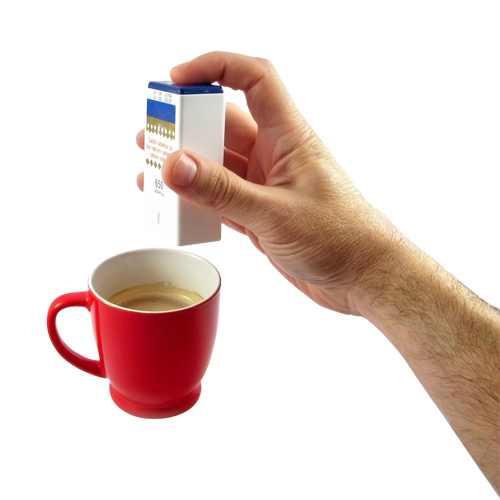Many patients with type 2 diabetes have to take medication to control blood glucose. Learn more about it.
What is type 2 diabetes?
Type 2 diabetes mostly occurs in people aged 40 and older. It is the most common type of diabetes. The body’s cells need glucose (sugar) to function and insulin enables them to use this energy source. In people with type 2 diabetes, the pancreas produces an insufficient amount of insulin or does not function adequately, resulting in increased levels of sugar in the blood (hyperglycemia).
The importance of controlling blood glucose
Hyperglycemia can cause certain symptoms that are unpleasant or dangerous to health in the short-term, and in some cases, lead to hospitalization. Additionally, prolonged exposure to hyperglycemia has a toxic effect on several of the body’s organs, including the heart, blood vessels, nerves, kidneys and eyes. Therefore, it is important to treat type 2 diabetes.
However, certain drugs can cause hypoglycemia (blood glucose levels < 4 mmol/l). If you are taking medication that is likely to cause hypoglycemia, it is crucial to know how to prevent and correct it, as it can also be dangerous for health: ask a pharmacist to provide you with information.
How is type 2 diabetes treated?
In order to control their blood glucose, people with type 2 diabetes should:
- choose a diet that is tailored to their needs to maintain a healthy weight
- exercise regularly, and
- closely monitor their blood glucose
In addition to adopting these measures, they may also have to:
- take oral medication (by mouth)
- use injectable drugs, such as insulin
Oral medication
In the last few years, treatment of type 2 diabetes has changed fast and there are a number of new available drugs. Some of them have promising effects, such as weight loss and protecting against cardiovascular diseases.
There are several families of drugs that can be used to help control blood glucose in patients with type 2 diabetes. Each family or class of drugs groups together drugs that act the same way. Therefore, it is possible to combine several medications from various drug classes with different mechanisms to help control blood glucose. Obviously, the ideal situation is to take the least amount of drugs possible to achieve target blood glucose and glycated hemoglobin (HbA1c). This is why we can’t emphasize enough the importance of choosing a healthy diet, staying active and maintaining a healthy weight, as these measures have a major impact on blood glucose control. If you take diabetes medication and decide to make some lifestyle changes, speak to our pharmacist, who will offer advice and adequate monitoring.
If you take medication for diabetes, ask your pharmacist to explain to you how they work. Some of them decrease the production of sugar in the liver, while others improve the elimination of sugar by the kidneys. There are also drugs that optimize the use of sugar by the muscles or the secretion of insulin by the pancreas. Some influence gastrointestinal hormones, which stimulates the secretion of insulin.
The effectiveness of most drugs can be maximized by choosing the optimal time of day to take them. Your pharmacist can provide information on the subject.
Medication side effects
Like any medication, the ones used to treat type 2 diabetes can cause side effects. However, it is important to know that in most cases, they can be managed. If you think you may have a side effect from a medication, speak to your pharmacist promptly. They will help you to reduce this unpleasantness or discuss it with your doctor.
Moreover, certain drugs used for people with type 2 diabetes are likely to cause hypoglycemia (blood glucose 4 mmol/L). This is why it is important to monitor your blood glucose using a blood glucose meter provided for this purpose. If one of your medications is likely to cause hypoglycemia, your pharmacist will explain to you how to correct it. Follow their advice to the letter!
Don’t hesitate to speak to your pharmacist for additional information about type 2 diabetes or its treatment.

